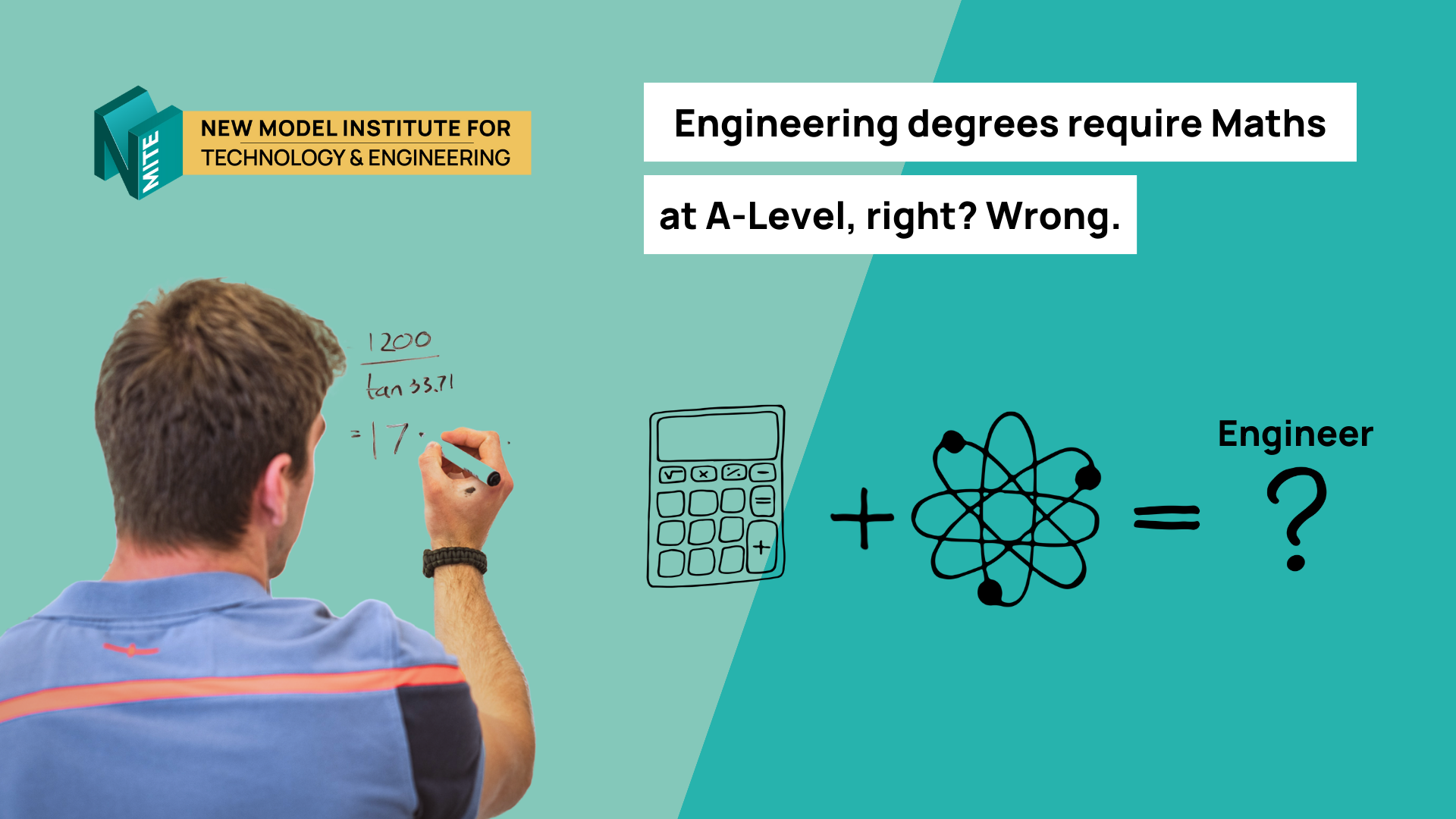
All universities require engineering degrees to have Maths and Physic at A-level, right? Well, not exactly.
In the UK, 62% of employers find that many new engineering graduates possess significant skills gaps, while 68% are concerned that the education system will struggle to keep up with the rate of technological change. It has become abundantly clear that the United Kingdom has a huge shortfall of engineers who possess the skills to face our changing world, and part of this problem is that too few women consider engineering as a career. Though things are heading in the right direction, the fact of the matter is, engineering is a great option for anyone who wants to make a difference, no matter who they are.
The New Model Institute for Technology and Engineering (NMITE) in Hereford has, in part, been created to enable more women and other under-recognised groups of people to become career-ready engineers. By eliminating the requirement for Maths and Physics at A-level, the Higher Education Institution has opened the doors to many who may not have had the opportunity to study engineering.
The real question is, why have Maths and Physics become recognised barriers to studying engineering for so many?
In the UK, students start thinking about their future careers as they choose their subjects of continuous study (options) in Year 9, occasionally, and depending on the school, this can be as early as Year 8. Essentially, children are made to make significant decisions around their future between the ages of 12-14, and historically, students have found themselves pursuing subjects typically associated with their gender. By widening the decision-making process for students at GCSE and A-Level by removing subject barriers to study engineering, we are opening the doors to creativity, ingenuity, and collaboration. Skills the current, and future workplace desperately needs.
Many argue that much of the maths and physics taught at A-Level is lost on the individual when not taught in relation to application. Although, sure, studying Maths or Physics at A-Level will set students in good stead to study engineering at degree level – it feels premature to exclude those who have not.
What is NMITE’s answer to delivering more work-ready engineers? With its new and multidisciplinary model of education, NMITE prioritises continual assessment over traditional exams and supports its students through the institutions Academic Skills and Knowhow Centre (ASK). A-Levels in Mathematics and Physics are not essential when applying to NMITE, since these elements have been integrated into their programmes (where appropriate and as required) providing students with the knowledge they need as part of NMITE’s interdisciplinary engineering curriculum. Essentially, knowledge and application thereof is embedded into the students learning – they teach their students the Maths and Physics required to successfully complete their studies, and how to apply it to the real-world.
An engineer designs with purpose in mind, to fulfil a need, considering aesthetic, function and impact. To engineer is to work artfully to bring something about.
NMITE’s overall curriculum is focused on contextualised learning, hands-on, in engineering studios where students work on real-world projects with a wide range of employers. Considered thinking around sustainability, ethics, business management, function and impact is embedded throughout students learning. Not only do they learn to problem solve; they are taught to develop the best possible solution to a current, or future problem.
NMITE is probably the biggest innovation in the UK’s higher education sphere in recent years, bringing radical but proven success from universities around the world into one exciting experience – and the results are already speaking for themselves. With their first cohort due to graduate in 2024, over half their students have already received employment pledges with a starting salary of £30,000.
NMITE is now open for applications for September 2024 – Apply now to start your MEng and BEng degree courses, or to begin your BSc Sustainable Built Environment Degree. Foundation Years available.





